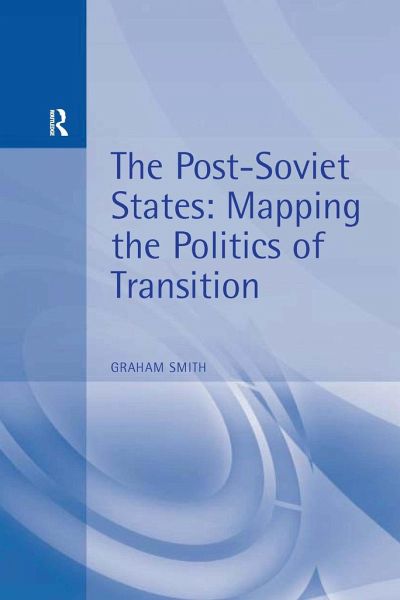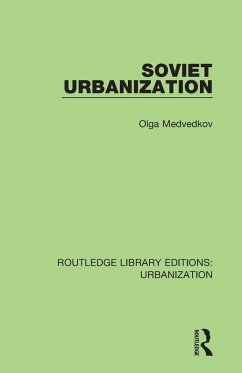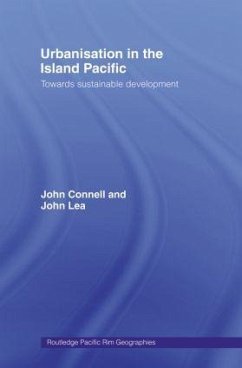
The Post-Soviet States
Mapping the Politics of Transition
Versandkostenfrei!
Versandfertig in 1-2 Wochen
54,99 €
inkl. MwSt.
Weitere Ausgaben:

PAYBACK Punkte
27 °P sammeln!
This is an examination of the geographical transitions underway following the collapse in 1991 of the Soviet Union and the 15 nation-states. The author argues that central to understanding the nature of this transition are four processes: decolonization, the transition from union republics to nation-states; democratization, the emergence of civil society and the formation of social movements; marketization, the transition from Marx to the market; and globalization, the transition from withdrawal to re-entry into the global community. This transition period also represents challenges to these post-colonial states in which the nature and impact of these processes will differ, due in part to the unique nature of their societies, economies and politics. The book uses case studies and examples to illustrate the ideas and theories posited.
The collapse of the Soviet Union has engendered one of the most momentous and critical regional transformations of our tiomes through the formation and development of the post-Soviet states. This book explores the politics of post-Soviet transition and the problems which will continue to face these states well into the twenty-first century, as they struggle towards democracy, market reform, ethnic co-existance and integration into a new geoplolitical post-Cold War world order. Richly illustrated with examples drawn from Russian and other post-Soviet primary sources, the author focuses on three broad themes of transition. Firstly, the progression from colonialism to post-colonialism and the consquences of such changes on national identity and the redefinition of national homeland. Secondly, the movement away from totalitarian rule and the factors which both facilitate and challenge the prospects of a democratic future. Thirdly, the process of securing a successful place in the global capitalist economy.














